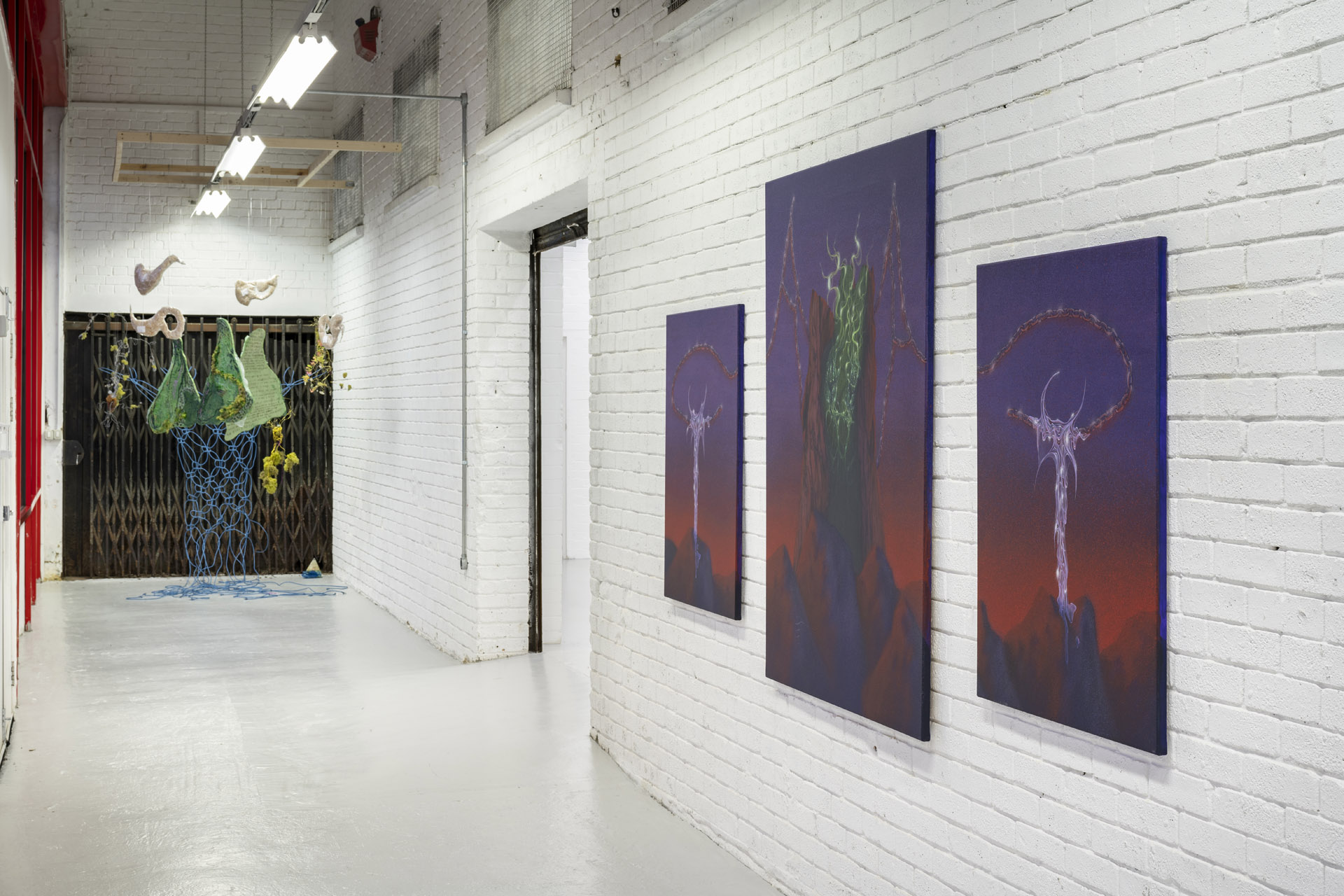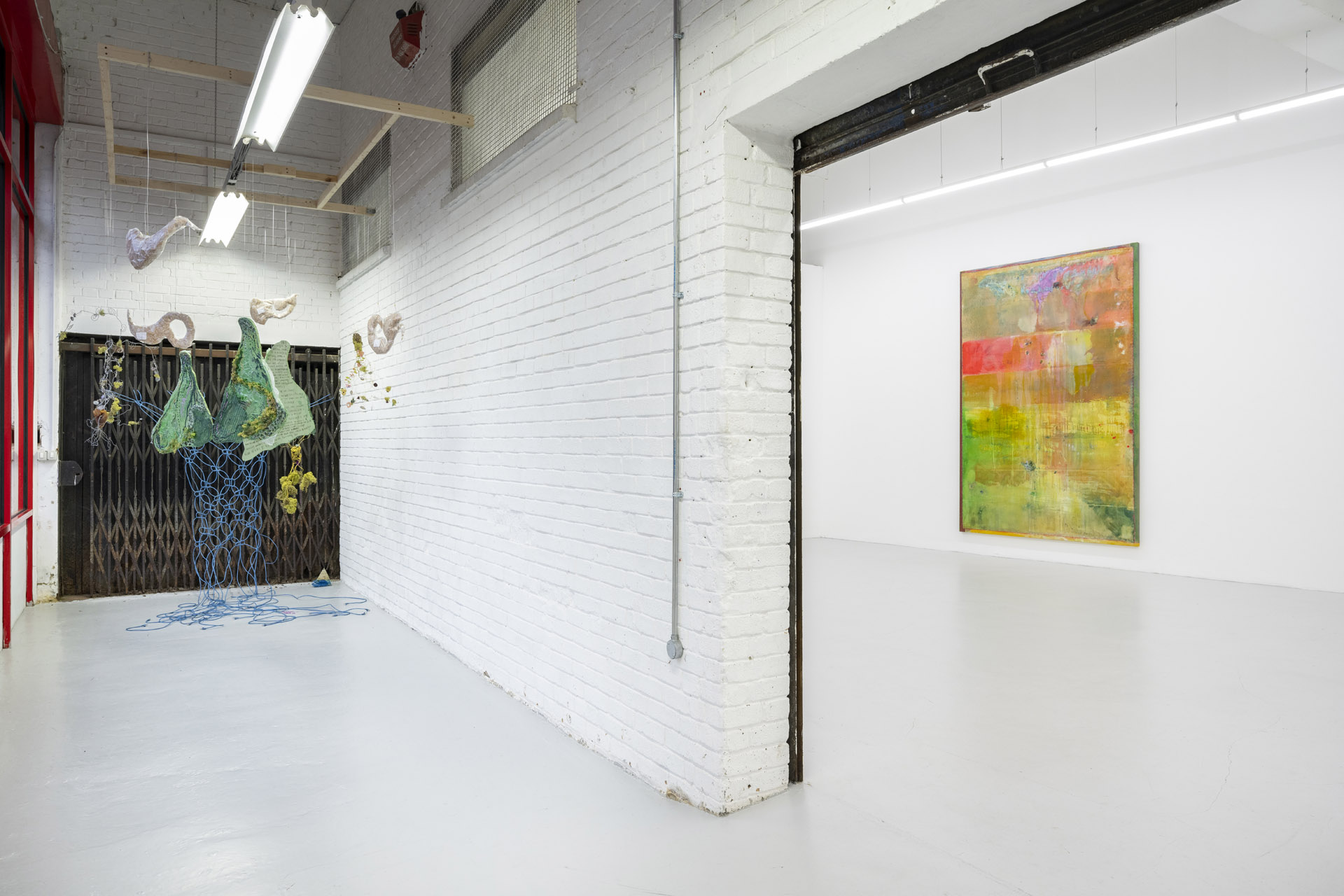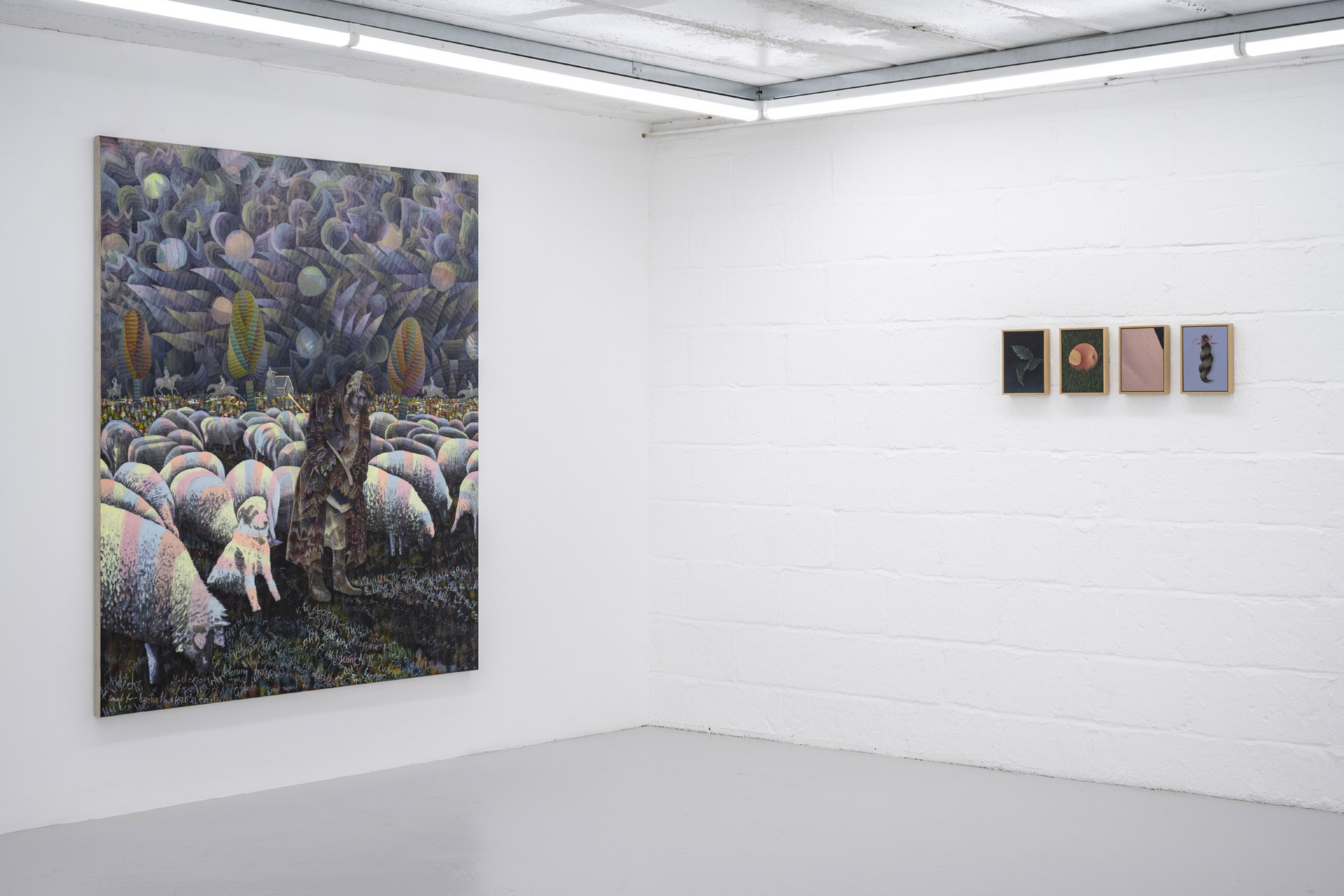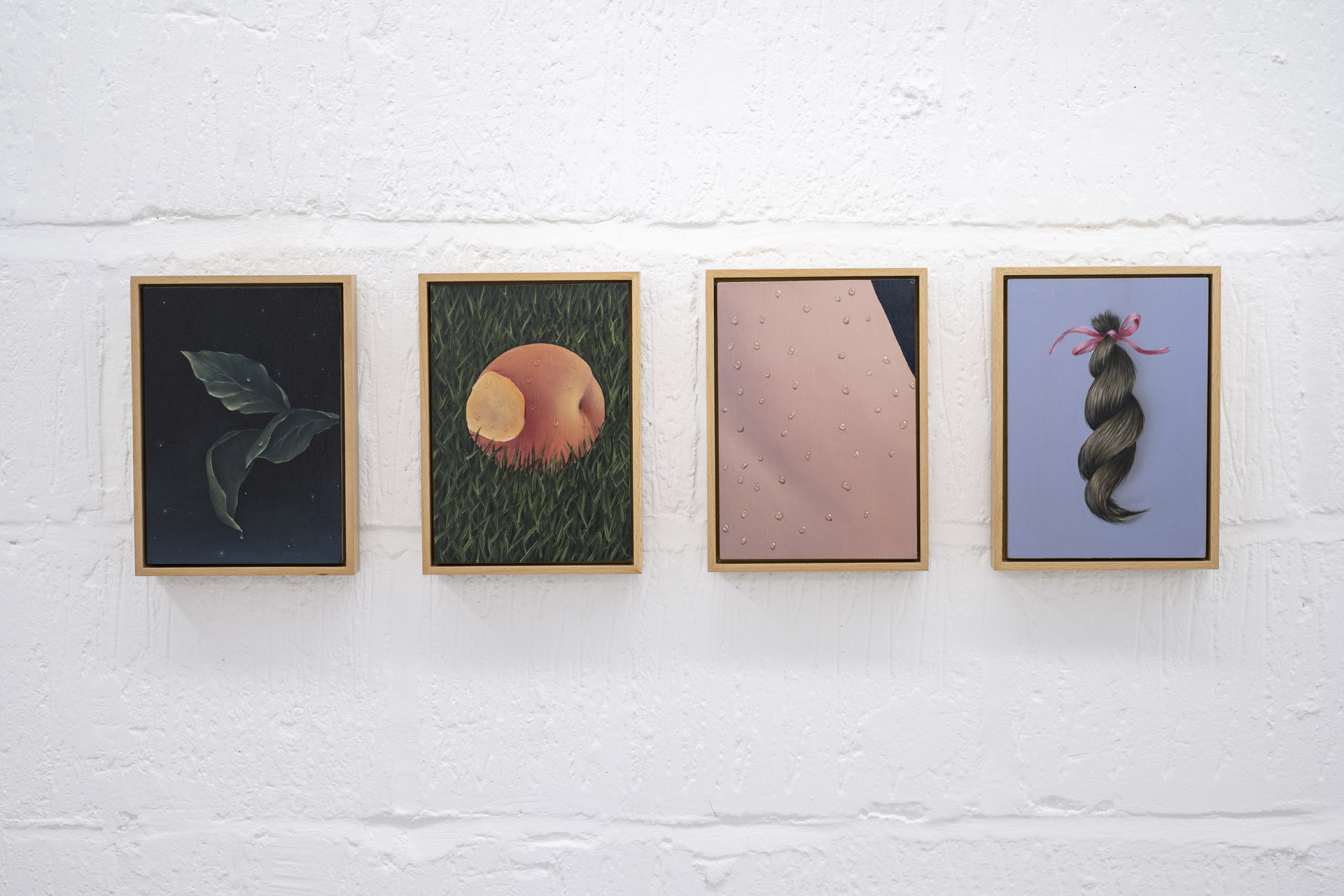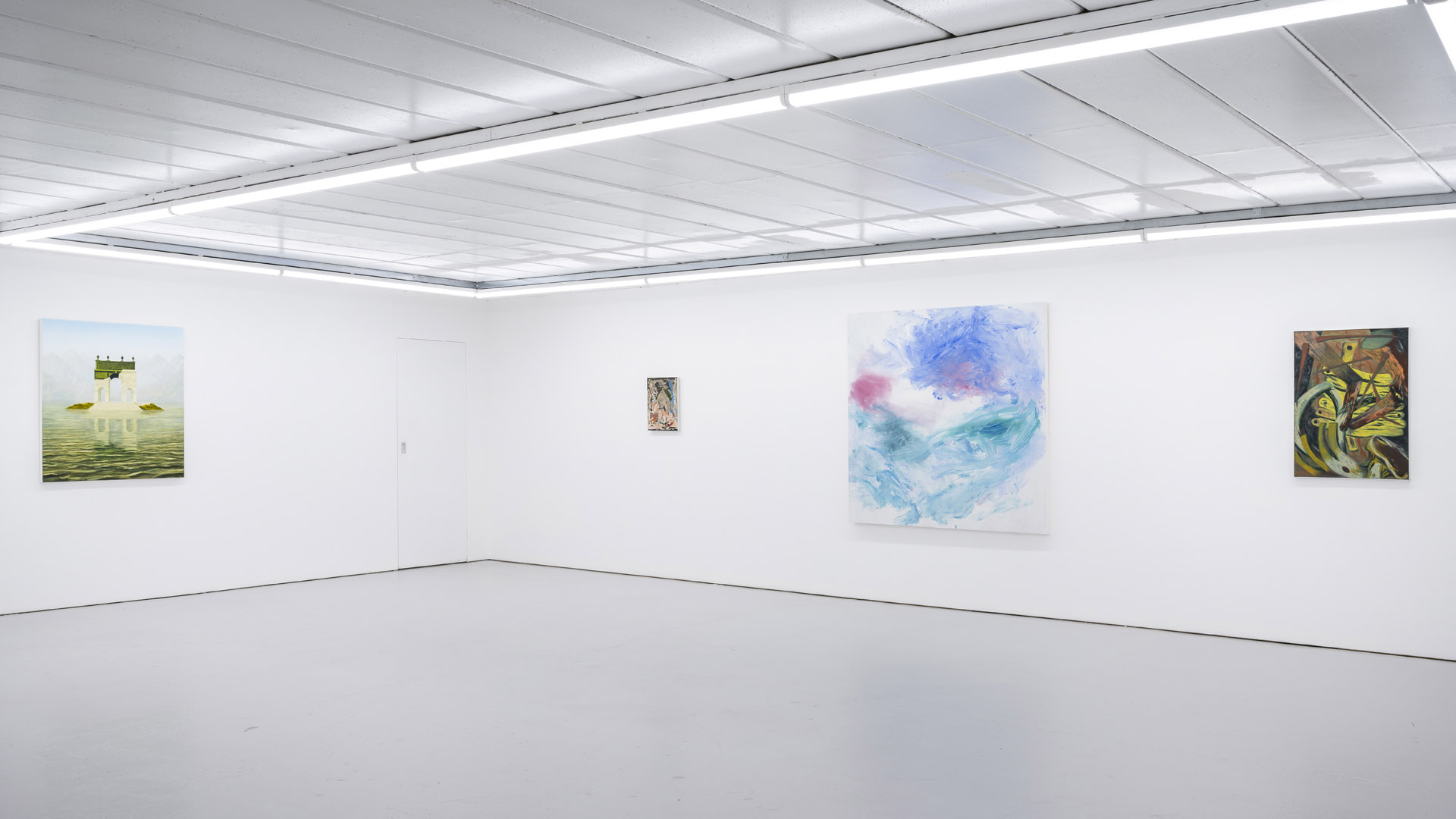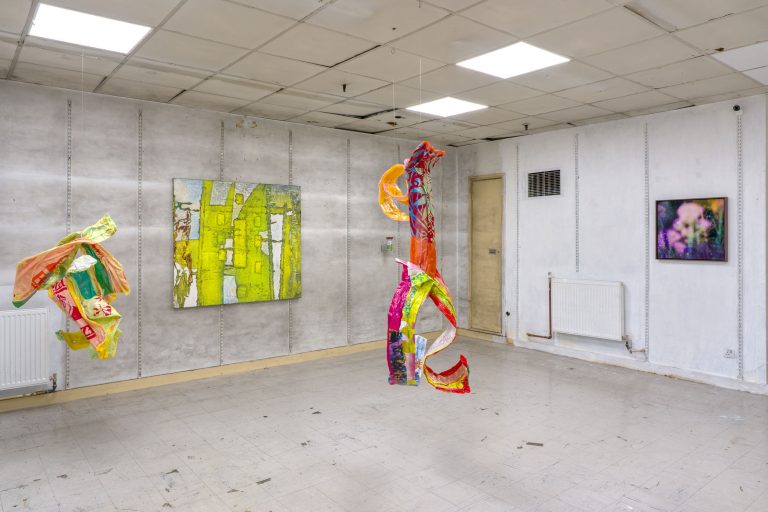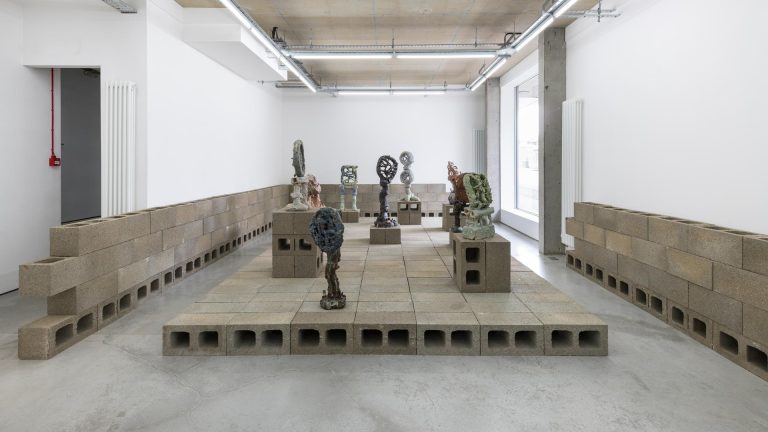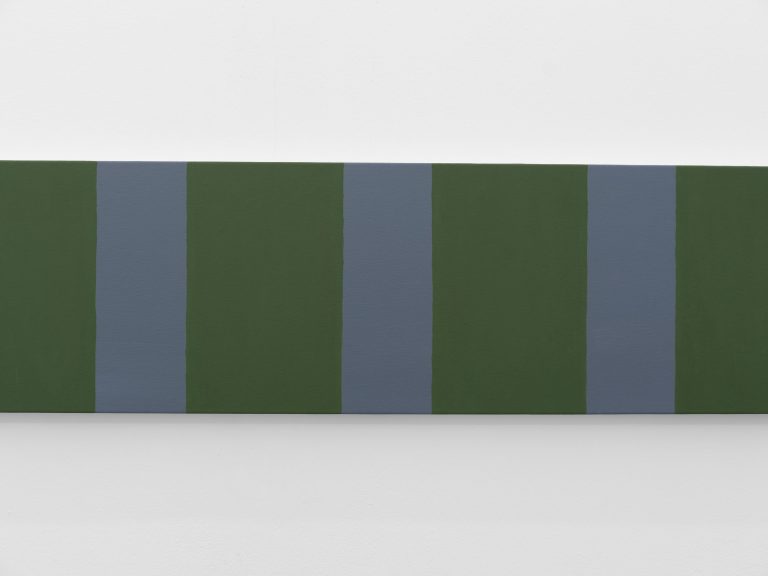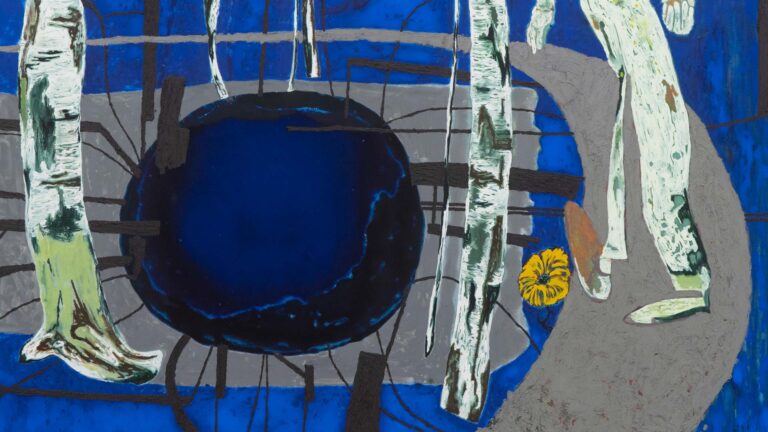Artists: Aaron Ford, Ádám Horváth, Alex Katz, Alfie Rouy, Allan Gardner, Ayesha Tan Jones, Cecily Brown, David Brian Smith, Frank Bowling, Isaac Lythgoe, Kate Bickmore, Luke Silva, Matthew Clifton, Natalia Gonzalez Martin, Shaun McDowell, Sholto Blissett, Sophia Belkin, Thom Trojanowski, Tyra Tingleff
Exhibition title: Tree and Leaf
Venue: Hannah Barry Gallery, London, UK
Date: November 20, 2021 – January 22, 2022
Photography: all images copyright and courtesy of the artists and Hannah Barry Gallery, London
It was in fairy-stories that I first divined the potency of the words, and the wonder of things, such as stone, and wood, and iron; tree and grass; house and fire; bread and wine.
— J.R.R. Tolkien
This group exhibition takes its title from a little-known short book by J.R.R. Tolkien, first published in 1964. The book contains two works, an essay called “On Fairy-Stories” and an allegorical short story called “Leaf by Niggle”. The two parts were first written independently
— in 1939 and 1945, respectively — and were brought together by shared aesthetic and philosophical virtues relevant to a consideration of landscape’s relationship to art and the creative process. Moreover, they spoke to the limits that framed this relationship in Tolkien’s own time whilst providing the means to explore ways in which to exceed these in our current moment.
The essay was originally written to serve as Tolkien’s presentation for a lecture on folklorist Andrew Lang at the University of St. Andrews, and deals with the confluence of fantasy, myth-making, enchantment and human imagination in literature. While the story, written the year Tolkien moved to Merton College, Oxford, to become Professor of English Language and Literature, recounts the strange adventures of the painter Niggle, who sets out to paint the perfect tree and is beset by a fusillade of chores, administrative and bureaucratic duties — a passionate adult fairy tale and an allegory of the creative process itself.
Tolkien emphasises in both pieces that through use of the enchanted realm — otherwise known as the Faerie — the artist can bring the audience to experience a world which is consistent and rational, under rules other than those of the normal world; or conversely, that the artist has the power to give to fantasy to reality. For Tolkien, this universal potential of human imagination is not only the reason why mythologies abound the world over — essential practices that contain spiritual or foundational truths about how a society’s customs, institutions, and taboos are established and sanctified — but is precisely why we must continue to create, subvert and pluralise new myths in the modern day.
An exercise in his own style of myth-making, Tolkien offers in “Leaf by Niggle” a vivid portrait of the struggles of an artist on a long journey, interrupted by neighbours and by intrusions of civic and social responsibilities. Niggle senses throughout that he will be snatched away from his work long before it is finished — if indeed it could ever be finished in this world. Eventually, it is in another, brighter place that Niggle finds his tree is finished and learns that it is indeed a real tree, a true part of creation. A tale of transformation, but also suspicion of what Tolkien perceived as modernity’s misplaced faith in rationalism and progress, the story examines the relationship between an artist, the act of creation and the society in which they live.
We are using Tolkien’s book as a point of departure to examine how the subject of landscape, and ideas about landscape, present themselves in contemporary painting and sculpture. In particular, the ways in which landscape can be used as an instrument of myth-making, creativity and storytelling. The landscape is a reality we can experience but also a place we find ourselves, be it natural, man-made or supernatural. It can be both the image and experience of creation and renewal, a symbol through which to proclaim, subvert and interrogate identity; and it can be both architect and victim of its own destruction. For artists, writers and scholars, landscape offers inspiration, solace and escape; and so much more for all who engage in the worlds of work, truth and fantasy.









